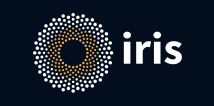Space astronomy science platforms focus week
Virtual
Astronomy has entered an era of "big data" science. Traditional access methods that extract small subsets of data for transfer and exploration to client-side applications no longer scale to the size and ambition of current and future large survey missions, both ground- and space-based.
In common with many international astronomical survey projects, ESA Gaia and Euclid teams are developing code-to-data platform facilities that will enable up-scale exploitation of datasets having data volumes of 10s to 100s of terabytes.
The aim of this virtual meeting is to provide the community with an opportunity to hear about the latest developments in code-to-data platforms for ESA Gaia and Euclid and to see examples of the kind of science exploitation that is becoming possible using them. In addition there is time allocated in the programme for users to bring their specific usage requirements along to one-on-one surgery sessions with astronomers and developers familiar with the platforms to provide an easy introduction to developing their workflows on the available services.
The meeting will be held entirely online. While activities are planned over the week it will not be necessary to commit an entire week of time. Attendees will be free to dip in and out of presentations as they prefer, and the surgery days are free for attendees to familiarise and work on platform facilities as their time allows. Registration is free but attendance may be limited on a first-come, first-served basis depending on the level of demand. Early-stage researchers and PhD students are particularly encouraged to attend.
Invited (and confirmed) speakers:
Jos de Bruijne and Pedro Garcia-Lario (ESA), Andre Moitinho (University of Lisbon), Anthony Brown (University of Leiden), Marc Drobek (German Centre for Astrophysics), Andy Taylor (University of Edinburgh), Steven Gough-Kelly (University of Lancashire), Alfred Castro and Sagar Malhotra (University of Barcelona)
Organising team:
Nigel Hambly, Brendan O'Brien, Malcolm Illingworth, Simon Harnqvist, Bob Mann (University of Edinburgh); Mark Taylor (University of Bristol); Xavier Luri (University of Barcelona); Nic Walton (University of Cambridge)
ACKNOWLEDGEMENTS:

Compute resources for UK Cloud-based science platform development for ESA Gaia and Euclid are provided by the UK Science and Technology Facilities Council (STFC) under the auspices of the IRIS initiative. Staff resources are provisioned via grants from the STFC and the Horizon Europe SPACIOUS programme.


